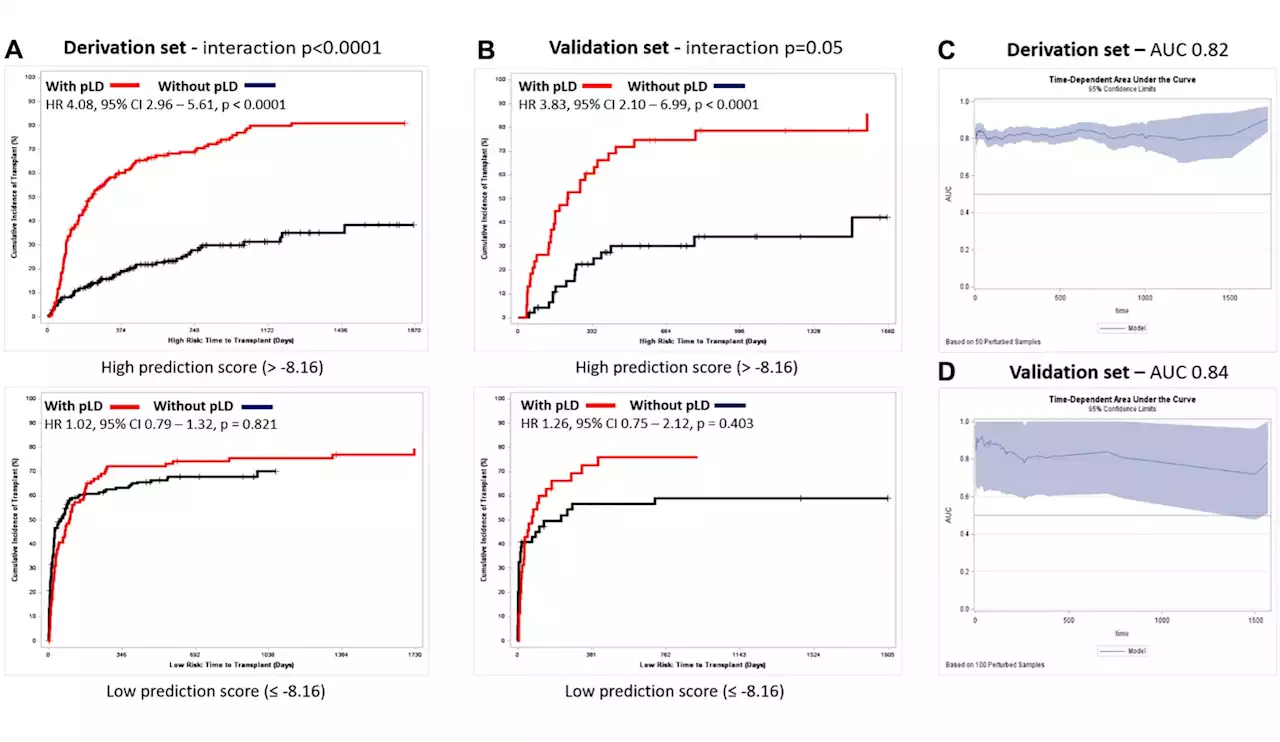Patients who have undergone pelvic radiotherapy may live with low-grade chronic inflammation of the lower intestine 20 years after the treatment. This has been shown in a study by researchers at the University of Gothenburg published in the journal eBioMedicine.
Confocal images taken for the ex vivo permeability studies in which intestinal biopsies were incubated with 1 μm bacterium-sized fluorescent red beads. a) Six years after treatment for anal cancer. The low-dose biopsy has mucosal layers that are able to maintain separation of the beads from the epithelial surface with mucus. In the high-dose biopsy , the mucosal layers are absent, and the beads are in direct contact with the surface. b) Fourteen years after treatment for ovarian cancer.
The study is based on samples from 28 people, including 24 cancer survivors. Four of the subjects had not undergone radiotherapy and served as a control group. Among the subjects, the shortest time since radiotherapy was two years and the longest time was twenty years. The median was five years between the end of radiotherapy and intestinal biopsy.
United Kingdom Latest News, United Kingdom Headlines
Similar News:You can also read news stories similar to this one that we have collected from other news sources.
 Living donor liver transplant access is optimal for high-risk waitlisted cirrhosis patients: StudyA new research paper titled 'Availability of living donor optimizes timing of liver transplant in high-risk waitlisted cirrhosis patients' has been published inAging.
Living donor liver transplant access is optimal for high-risk waitlisted cirrhosis patients: StudyA new research paper titled 'Availability of living donor optimizes timing of liver transplant in high-risk waitlisted cirrhosis patients' has been published inAging.
Read more »
 Low back pain episodes are shorter when patients choose physical therapy first, study findsPatients who first seek physical therapy or chiropractic care have better outcomes and shorter episodes of acute care for low back pain, according to new research from the University of Pittsburgh and published today in the journal Physical Therapy.
Low back pain episodes are shorter when patients choose physical therapy first, study findsPatients who first seek physical therapy or chiropractic care have better outcomes and shorter episodes of acute care for low back pain, according to new research from the University of Pittsburgh and published today in the journal Physical Therapy.
Read more »
 Study offers way to increase immune checkpoint inhibitor effectiveness in patients with MTAP-deleted cancersLoss of the 'housekeeping' gene methylthioadenosine phosphorylase, or MTAP, is a common event in cancer. Patients with melanoma or bladder cancer whose tumor cells lack a functioning version of the gene tend not to respond to immune checkpoint inhibitors, although the reasons haven't been clear.
Study offers way to increase immune checkpoint inhibitor effectiveness in patients with MTAP-deleted cancersLoss of the 'housekeeping' gene methylthioadenosine phosphorylase, or MTAP, is a common event in cancer. Patients with melanoma or bladder cancer whose tumor cells lack a functioning version of the gene tend not to respond to immune checkpoint inhibitors, although the reasons haven't been clear.
Read more »
 Placebo effect found to be growing stronger for transcranial magnetic stimulation therapy used for depressionA team of medical researchers from Shanghai Jiaotong University School of Medicine, Central South University and the Second Affiliated Hospital of Anhui Medical University, all in China, has found evidence suggesting that the placebo effect has grown stronger in trials of transcranial magnetic stimulation therapy for patients treated for depression.
Placebo effect found to be growing stronger for transcranial magnetic stimulation therapy used for depressionA team of medical researchers from Shanghai Jiaotong University School of Medicine, Central South University and the Second Affiliated Hospital of Anhui Medical University, all in China, has found evidence suggesting that the placebo effect has grown stronger in trials of transcranial magnetic stimulation therapy for patients treated for depression.
Read more »
 Davey makes pledge on legal rights for cancer patients in keynote speechLib Dem leader Sir Ed Davey made the commitment as part of his speech at the party conference in Bournemouth.
Davey makes pledge on legal rights for cancer patients in keynote speechLib Dem leader Sir Ed Davey made the commitment as part of his speech at the party conference in Bournemouth.
Read more »
